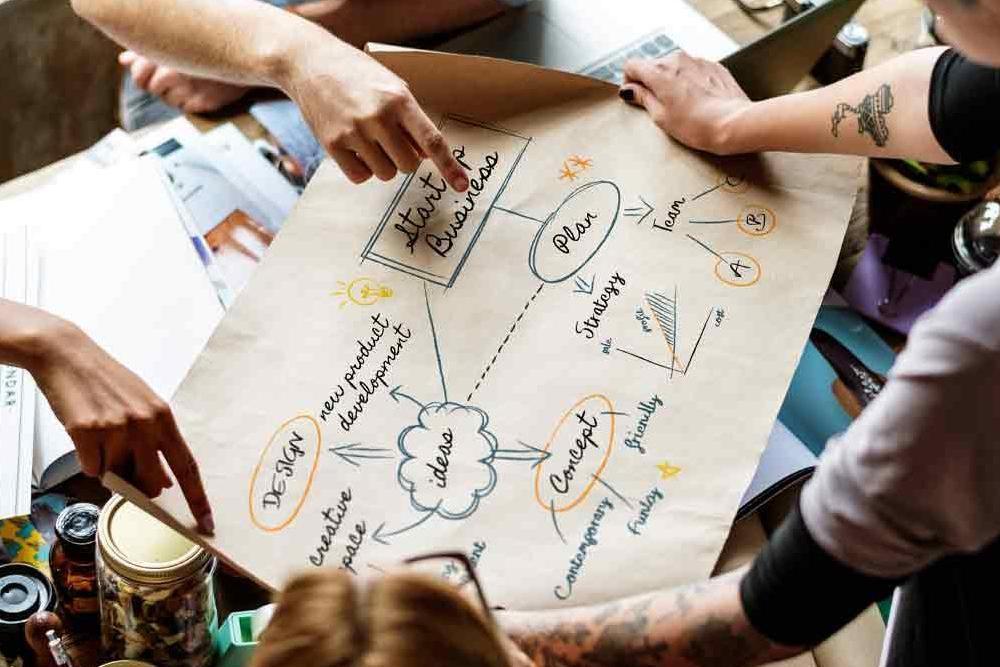
Sustainability
All our policies, plans and pledges

Environmental audits and policies
Our Sustainability Strategy outlines our action plan and targets to improve the sustainability of 10 key areas within the Universities activities.
Alongside our Carbon Reduction management plan this forms our environmental policy. These are ‘Live documents’ updated to reflect current plans and priorities at BSU.
We’ve been certified to ISO 14001 and ISO 50001 standards, which are audited both internally and externally annually.
Each year, our dedicated £50k sustainability budget is used to investigate and implement methods of engagement and impact reduction across the University. This is supplemented by the wider Estates budget for upgrades to our campuses, working to implement our Carbon Reduction Management Plan.
Carbon Reduction Management Plan
Sustainable estate management
Carbon reduction management plan
Our Carbon Reduction Management Plan aims to provide direction for our overall carbon reduction strategy. This document acts as a policy for BSU to focus on our most impactful areas, and is updated regularly.
Waste reduction plans
BSU have set targets to reduce waste, including within our Food Waste Minimisation Plan, and our Sustainability Strategy. With these targets we aim to reduce the amount of waste produced, as well as ensure it is disposed of in a sustainable manner to support a circular economy. None of our waste is sent to landfill.
Food sustainability policies and projects
BSU are currently Fairtrade accredited, reflecting the work done to promote fairtrade, and the products sold across campus. We are working towards Food for Life and Green Kitchen Standard accreditations, and expect these to be awarded summer 2025.
Vegetarian and planet based food is available at all of our food outlets, and one (our Pitta Bar) is completely meat-free.
We also support community involvement in our food supply, by working with the grounds team to collect and use fruits grown on site. We have a shared allotment space at Newton Park that’s open to all students to grow fruit and veg, from first time growers to expert gardeners. Find out more about our allotments on our Growing Spaces page.
You can find out more in our Sustainable food policy and Food Waste Minimisation Plan.
Managing biodiversity on campus.
Our beautiful grounds are a source of pride for BSU, and we aim to look after them well, with annual biodiversity monitoring and reporting, as well as living lab opportunities offered throughout many of our Bath based courses.
We have set specific targets for biodiversity within our Sustainability Strategy, and are also working towards our Green Flag certificate to recognise the hard work we do to maintain and improve our historic surroundings.
Travel and transport
Travel and transport are recognised as an important part of our sustainability strategy, where we’ve set specific goals to improve our active and public travel uptake. We work closely alongside the Students Union to improve the buses available for travel to our campuses, and have set specific goals to improve air quality and reduce staff business and commuting emissions.
Our Travel Plan and Travel Policy provide more detail.
Purchasing and procurement policy
Bath Spa University understands that the goods and services procured in the course of University business have environmental, social and economic impacts throughout the supply chain, as well as financial impacts upon Bath Spa University.
Our Sustainable procurement policy contains more detail.
Water use reduction
Our policy and targets for water use reduction are included within our Sustainability Strategy. We aim to improve our resource efficiency as well as investigate innovative ways of reducing consumption and promoting reuse.
Construction
BSU are aware that construction is a significant source of emissions, and as a growing organisation we must ensure any new or refurbished builds are as sustainable as possible. Our Sustainability Strategy and Sustainable Construction Policy lay out our goals for this area.
The University understands that our estates are the biggest producers of scope 1 and 2 emissions. We recognise and cherish the unique spaces in which we learn and work and we're working hard to improve efficiency and reduce our impact.
Sustainable People Management
Ethical careers position statement
We are committed to ensuring students have access to green career prospects, and will only advertise jobs that align with our ethical careers position statement.
Sustainability team
We have a dedicated sustainability team at BSU, but all staff are involved in sustainability in one way or another. Our current team is as follows:
Sustainability Manager: Ripley Hill-Nixon
Sustainability Co-ordinator: Harry Richardson, Emma Jakins
Energy Performance Officer: Eve Winwood
Eco champions network
We understand that to make a difference, we need everyone at the university to get involved. For this reason we host an Eco champions network, where our members of staff can get involved in our schemes, and start their own initiatives.
Key responsibilities are to:
- Assist with the development and delivery of the Carbon Literacy Training programme
- Disseminate any changes to policy, practices and staff benefits focused on sustainability
- Share and take responsibility for department/school responses to the Travel Survey
- Coordinate the enhancement of the Sustainable Development Goals within the curriculum of employee’s department
- Relay any ideas or concerns highlighted by colleagues to the Sustainability Team
Any staff member with a passion and drive for sustainability is welcome to join the Environment Champion Network. We aim to have at least once representative from each department and school across all Bath Spa campuses.
Meetings are open to all employees and are held quarterly.
Living Wage Organisation
BSU are committed to looking after our employees, and are accredited as a Living Wage Employer.
Workers' rights
Bath Spa University are signed up to the Can’t buy my silence pledge, a campaign committed to end the misue of NDAs to buy victims' silence.
We are also committed to sustainable procurement practices, and are covered under the Southern Universities Purchasing Consortium by the Electronics Watch to ensure fair treatment of workers in global supply chains.
Outsourced staff statement
The University is committed to ensuring equal pay and conditions of employment for directly employed staff and for individuals hired outside of the University’s internal staff workforce, often referred to as outsourced workers.
We expect outsourced workers to receive equivalent pay to that of staff directly employed by the University for undertaking equivalent roles and tasks, and as we are proud to be an accredited Living Wage employer, no less than the Real Living Wage for the time they are employed.
We also ask contractors to pay at least the Real Living Wage rate to staff assigned to work under tendered contracts for the duration of the contract.
We commit to regular review of all individuals hired outside of our internal staff workforce to ensure ongoing equality of pay and conditions for all staff and workers involved with the University.
Proportion of academic staff on fixed term contracts
We are proud of the work that we have completed in partnership with our Trade Union, UCU, to introduce permanent Teaching Fellow contracts, which have reduced the use of casual academic contracts at Bath Spa University. Providing greater job security for those working within these roles.
As at May 2025, the proportion of academic hours worked by those on a fixed term contract compared with those hours worked by individuals on a permanent contract was 5.83%. This data set will be reviewed on an annual basis to ensure we maintain an appropriate proportion of academic staff on fixed term contracts.
Staff and student engagement policy
Engaging with our staff and students is key to reducing our environmental impact. This policy outlines how we will engage with staff and students, our targets and reporting mechanisms.
BSU have also signed up to Green Impact, a methodology to engage with staff across the university, encourage more sustainable action, and involve students in our annual auditing process.
Sustainability reaches further than the environment and our estate, and we believe we have a social responsibility to ensure all BSU activities align with our net zero goal.
The Careers and Employability Service supports Bath Spa’s sustainability and responsible investment goals, ensuring students and graduates have access to an impartial service that aligns with their values and aspirations.
Sustainable financial management
BSU is committed to socially responsible investment and ethical financial management.
Responsible investment policy
Bath Spa University (BSU) holds an active, robust and publicly available which applies to the full scope of the Institutions investments.
BSU is fully committed to acting in a socially responsible manner, its policy sets out consideration of Environmental, Social and Governmental (ESG) issues relating to all decisions regarding the Universities investment portfolio.
Our Responsible Investment Policy is reviewed regularly by the Finance and Infrastructure committee to ensure the policy remains fit for purpose. Any proposed changes are subject to approval by the Board of Governors. This has been actively reviewed in the prior 5 years.
Ethical banking
The University is committed to ensuring the banks we hold deposits with are aligned with our sustainability goals, and comply with our Responsible banking and treasury policy.
Financial statements
The University publishes its annual report and financial statements following formal approval at the December meeting of the Board of Governors.
Annual reports and financial statements for previous years are available online.
Annual list of investments
As part of our sustainability commitments, we think it’s essential that our investments support the decarbonisation agenda.
In addition to our Fossil Free Pledge, we’ve developed a Responsible Investment Policy, which prevents us from investing in companies with corporate behaviour that leads to "Environmental Damage or Climate Change", which excludes investment in the fossil fuel industry.
To ensure this is upheld, we have in place a Financial Portfolio Committee, which reports to the Board of Governors.
In line with our compliance requirements governed by our regulator the OfS, we publish our financial statements within our annual report on an annual basis. This report contains a summary of our sustainability work during the year.
To ensure transparency and in line with sustainability best practice, we also publish an annual report on our investment porfolio and its holdings.
Fossil Free Pledge
Bath Spa University has no investments in extractor fossil fuel companies and commits to ensuring that they will be excluded from any future investments we make.
Read more about our commitment in our Fossil free pledge.
Financial management team
Our Finance and Infrastructure committee advises on the management of the University's assets, reporting to the Board of Governors.
A list of committee members that oversee investments can be found in the Finance and Infrastructure Committee Terms of Reference.
Meeting minutes can be found in the Board of Governors’ Documents archive list.
The university commits to including student representation on its investment committee(s) and there are clear ongoing opportunities for the wider student body and staff community to engage with the policy.
There is a commitment, on an annual basis, to publicly disclose/list all investments being held in different companies across all asset classes and the market value of those holdings (at minimum, listing what percentage of the university’s investment holdings is invested in different sectors), with a link to or explanation about where that list can be found.

Education for sustainable development
At BSU we're proud of the work we do to prepare our students with the knowledge, understanding, skills and attributes needed to work and live in a way that safeguards environmental, social and economic wellbeing, both in the present and for the future.
One of the ways we embed sustainability in our curriculum is through our living labs programme. We also provide support for lecturers to include sustainability in their teaching. Other ways the university prioritises Education for Sustainable Development (ESD) include:
- Creating spaces for dialogue, collaboration and participation around ESD
- Provision of training in ESD. Inviting trade union representatives to participate in the development of ESD
- Monitoring the uptake of staff training and development for ESD with resources for continual improvement
- Allocating a number of Continuing Professional Development hours in ESD for academic staff
- Supporting the development of resources for ESD.